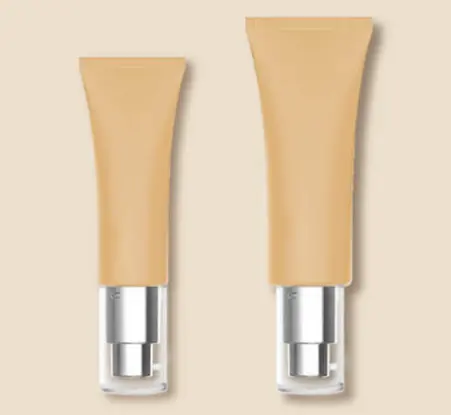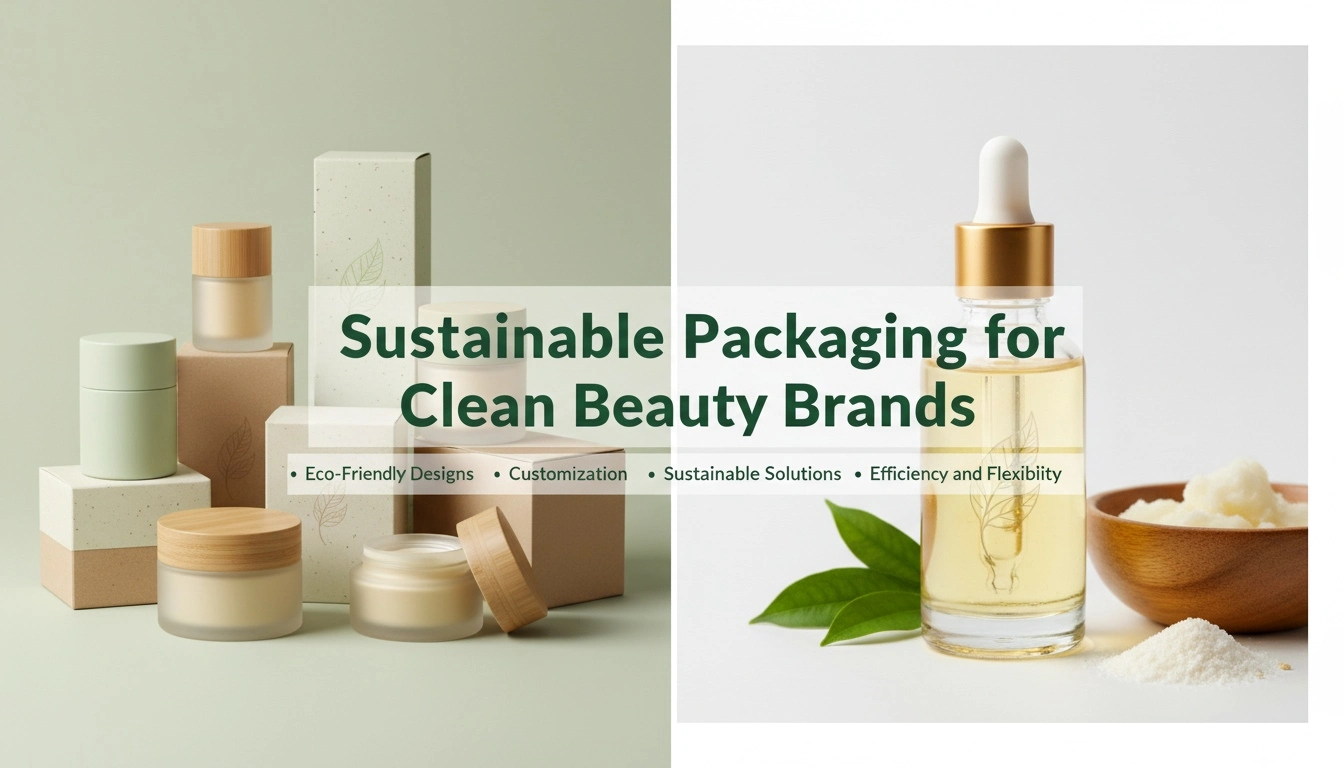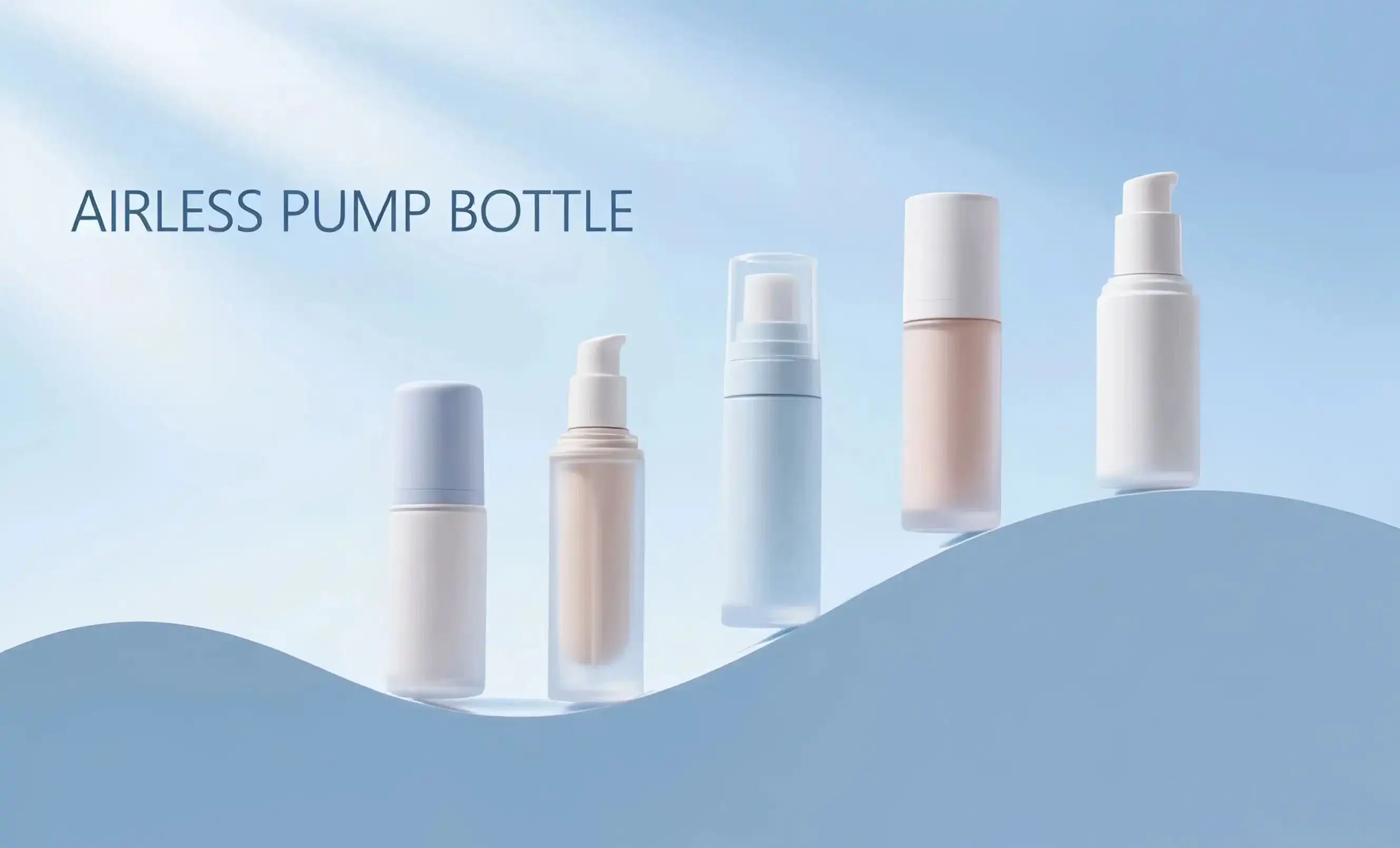Biodegradable Materials in Airless Tube Manufacturing: Current Innovations
Innovative biodegradable materials for airless cosmetic tubes have emerged as a result of the ongoing search for environmentally friendly packaging solutions. These materials are engineered to decompose organically, alleviating the ecological crisis caused by trash. Bioplastics, which are made from sustainable sources including sugarcane, maize starch, and cellulose, are quickly replacing plastics made from petroleum.
Topfeelpack's Commitment to Eco-Friendly Materials
Investing in R&D to produce airless tubes that fulfill performance and ecological standards, leading manufacturers like Topfeelpack are leading the way in this green revolution. These modern materials not only break down more easily in nature, but they also keep the necessary barrier characteristics that delicate cosmetics need to stay fresh.
One new innovation that provides a sustainable end-of-life option for packaging trash is the creation of biodegradable airless tubes. These tubes may be processed in industrial composting facilities. Also, when exposed to microbes in composting or landfills, some novel materials include organic additives that speed up biodegradation, making the tubes more effective at breaking down.
Closed-Loop Recycling: Transforming Used Tubes into New Packaging
Closed-loop recycling is a big step forward for environmentally friendly ways to package airless cosmetic tubes. This method tries to make an economy where used packaging is collected, processed, and made into new tubes again. This cuts down on the need for new materials and trash by a large amount.

Implementing Efficient Collection Systems
Efficient collection methods are crucial to the achievement of closed-loop recycling. Brands in the cosmetics industry are teaming up with stores and trash management firms to set up easy locations where customers can return their old airless tubes. A number of businesses are going to extreme lengths to encourage recycling and environmental consciousness among their customers by offering rewards to those who return empty packaging.
Following collection, the tubes are subjected to a thorough sorting procedure to distinguish between various polymers and eliminate any remaining product. For cosmetic packaging, only recycled materials that have undergone rigorous washing and disinfection processes will do.
Innovative Recycling Technologies
Modern recycling methods are being used to effectively handle old airless tubes. In order to make new, high-quality materials, chemical recycling techniques like depolymerization disassemble polymers into their component chemicals. Using this technology, even complicated multi-layer tubes may be recycled, which was previously impossible using mechanical recycling processes.
Recycled materials are now of higher quality and purity because to developments in sorting technology, such as spectroscopic analysis and artificial intelligence, which allow for the more accurate separation of various plastic kinds. This opens up new avenues for developing airless cosmetic tubes that include recyclable materials without sacrificing performance or looks.
Carbon Footprint Reduction: Airless Tubes vs. Traditional Packaging
The shift towards airless cosmetic tubes is not just about material sustainability; it also plays a crucial role in reducing the overall carbon footprint of cosmetic packaging. When compared to traditional packaging options, airless tubes offer several advantages that contribute to a lower environmental impact.
Extended Product Shelf Life
One of the primary benefits of airless tubes is their ability to extend product shelf life. By protecting the contents from air and contaminants, these tubes reduce the need for preservatives and minimize product waste due to spoilage. This extended shelf life translates to fewer production cycles and reduced energy consumption in manufacturing and distribution processes.
Material Efficiency and Weight Reduction
Airless tubes are designed to maximize product dispensing, allowing consumers to use nearly 100% of the product. This efficiency reduces the frequency of replacements and, consequently, the overall packaging waste generated. Additionally, many airless tube designs incorporate lightweight materials and streamlined structures, further reducing the carbon emissions associated with transportation and logistics.
Topfeelpack's innovative airless tube designs prioritize material efficiency without compromising on functionality. By optimizing wall thickness and utilizing advanced molding techniques, they achieve significant weight reductions compared to conventional packaging, contributing to a lower carbon footprint across the product lifecycle.
Energy-Efficient Manufacturing Processes
When compared to more conventional packing techniques, the production procedures used to make airless tubes are often more energy efficient. The use of recycled materials in manufacturing further decreases the total environmental effect, while advanced molding and extrusion methods decrease energy consumption during production.
Additionally, airless tubes' small size makes better use of storage and transit space, which in turn reduces the amount of shipments needed and the carbon emissions that come with them. Reduced energy needs for shop lighting and temperature control are a result of the space-saving feature of airless tubes, which extends to the retail environment.
Conclusion
Reusing and creating airless cosmetic tubes is a gigantic step towards the makeup commerce getting to be more eco-conscious. Unused innovations like biodegradable materials, closed-loop reusing strategies, and a reduced carbon footprint are revolutionizing restorative bundling. Brands that embrace these maintainable bundling arrangements will not, as it were, rule the showcase but will also offer assistance and make a more advantageous world, which is getting to be more imperative to clients who esteem eco-friendly products.
Would you want to take your cosmetics, skincare, or personal care products to the next level using environmentally friendly, high-performance airless tubes? Discover state-of-the-art solutions designed to meet your unique requirements with Topfeelpack. Brands looking to raise their environmental image without sacrificing quality or style will find us to be the perfect partner because to our dedication to sustainability, quick customisation possibilities, and cheap pricing. Topfeelpack has revolutionized cosmetic packaging with its state-of-the-art airless bottles. These bottles not only reduce environmental effect but also prolong the shelf life of your products. Are you prepared to revolutionize your packaging strategy? Contact us today at pack@topfeelgroup.com to explore how our innovative airless cosmetic tubes can align with your brand's sustainability goals and market demands.
References
1. Johnson, A. (2023). "Innovations in Biodegradable Cosmetic Packaging: A Sustainable Future." Journal of Sustainable Packaging, 15(2), 78-92.
2. Smith, B., & Garcia, C. (2022). "Closed-Loop Recycling Systems for Cosmetic Tubes: Challenges and Opportunities." Waste Management & Research, 40(3), 321-335.
3. Lee, S. Y., et al. (2023). "Comparative Life Cycle Assessment of Airless and Traditional Cosmetic Packaging." Resources, Conservation and Recycling, 178, 106081.
4. Wilson, D. (2022). "The Role of Consumer Behavior in Driving Sustainable Packaging Trends in the Beauty Industry." Journal of Consumer Research, 49(4), 612-628.
5. Chen, X., & Wang, Y. (2023). "Advanced Materials for Eco-Friendly Cosmetic Packaging: A Review." Sustainable Materials and Technologies, 32, 100405.
6. Brown, K. (2022). "Economic Implications of Transitioning to Sustainable Packaging in the Cosmetics Sector." International Journal of Production Economics, 244, 108381.

 - 副本_1745399213966.webp)

_1747827716538.webp)

